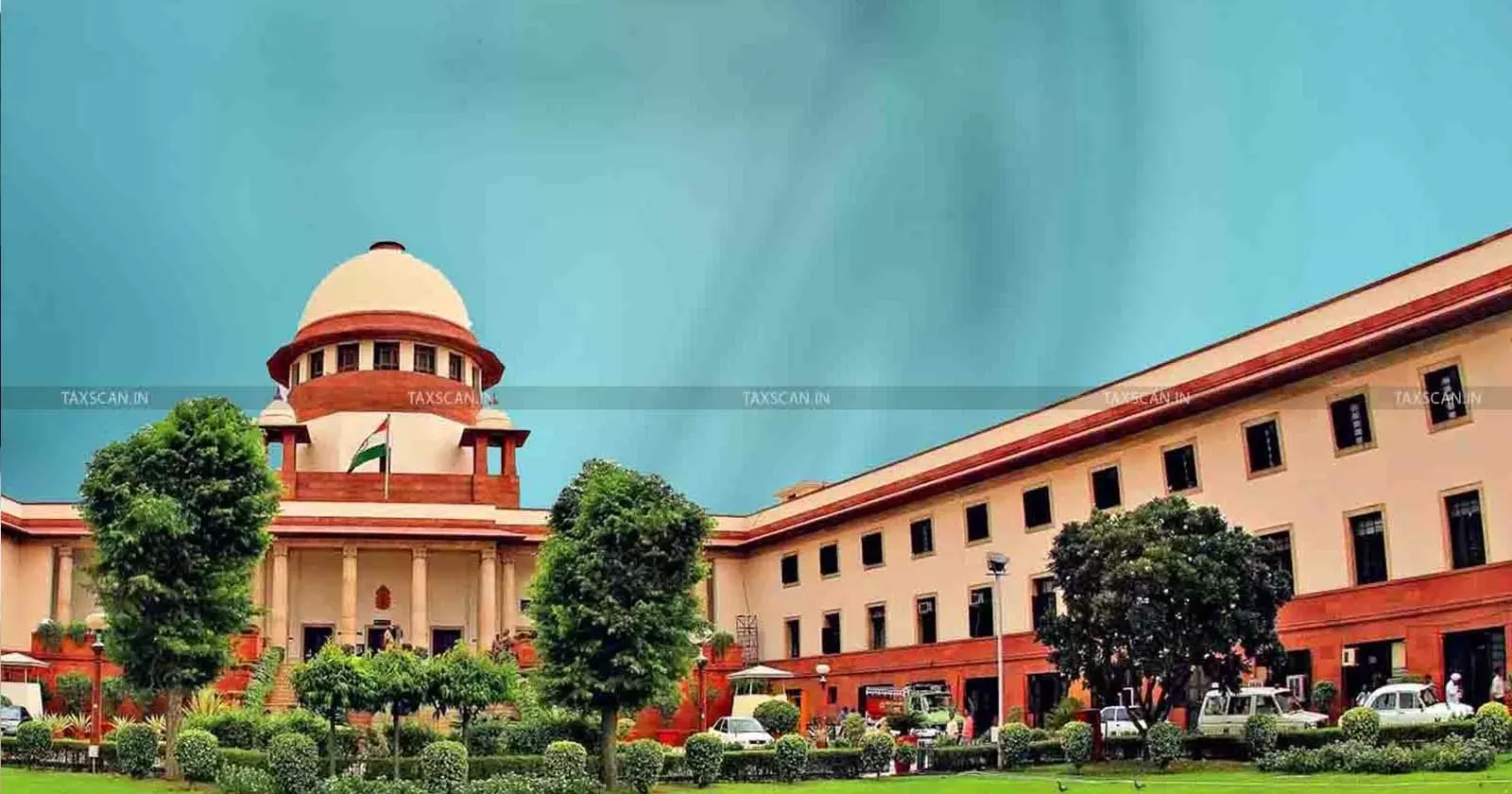When Can You Appeal Directly to Supreme Court in Tax, Customs, and GST Matters? A Detailed Explanation
Direct appeals to the Supreme Court in tax, customs, excise, and GST matters are allowed only when disputes involve the rate of duty, valuation, or classification.

India’s appellate system generally routes tax disputes through specialized tribunals and High Courts before the Supreme Court but there are specific carve-outs in customs, excise, service tax, and GST where a party can go straight to the Supreme Court from the appellate tribunal.
When Direct Appeals Permitted?
Direct appeals to the Supreme Court are permitted in indirect taxes when the dispute turns on the rate of duty or tax, valuation, or tariff/classification questions defined by statute. Income tax does not allow a direct jump from the tribunal; it must first go to the High Court and then, if required, to the Supreme Court.
Apart from these statutory appeals, the Supreme Court can always be approached by way of a Special Leave Petition (SLP) under Article 136 of the Constitution, which is discretionary and not a matter of right.
Customs: Section 130E of the Customs Act, 1962
A direct appeal to the Supreme Court is allowed under Section 130E if the order of the Customs, Excise, and Service Tax Appellate Tribunal (CESTAT) involves:
- Rate of duty of customs
- Valuation of goods for assessment
- Classification issues that affect rate or valuation
- Or an order passed by CESTAT that follows a prior Supreme Court ruling.
This provision exists to ensure uniform interpretation of tariff entries and valuation principles that have nationwide implications.
For example, in Commissioner of Central Excise, Customs and Service Tax v. M/sSuch Silk International Ltd. (2022 TAXSCAN SC 190), the Supreme Court held that High Courts cannot dismiss appeals as non-maintainable merely because valuation was involved. The High Court must examine whether the issue truly concerns valuation or raises other questions of law.
In Commissioner of Central Excise v. M/s Lanyard Foods Ltd. (2025TAXSCAN SC 269), the Supreme Court ruled that when a case involves breach of exemption notification conditions, it falls within the High Court’s jurisdiction under Section 130, not the Supreme Court under Section 130E. Only pure valuation or classification matters are appealable directly to the Supreme Court.
Another recent example is the Sedna Impex India Pvt. Ltd. case (2023), where the Supreme Court issued notices on whether importers could claim Central Excise duty exemptions while paying Countervailing Duty (CVD) or Additional Customs Duty (ACD). This question directly affects valuation and parity with domestic excise duty, illustrating the kind of dispute that qualifies for direct Supreme Court review under Section 130E.
Central Excise: Section 35L of the Central Excise Act, 1944
Under Section 35L, appeals involving the rate of duty or valuation of excisable goods go directly to the Supreme Court. The same applies to service tax through Section 83 of the Finance Act, 1994.
In M/s Steel Authority of India Ltd. v. Commissioner of Customs(2017), the Supreme Court held that such appeals are admitted only if they concern rate or valuation, raise a substantial question of law, or show a procedural or natural justice violation. If the CESTAT has already reached a reasoned conclusion, the Court will not re-examine the facts.
High Courts have echoed this. The Delhi High Court in Konark Exim Pvt. Ltd. (2025) and JMD Limited (2025), and the Jharkhand High Court in Bihar Foundry and Casting Ltd. (2024), all ruled that taxability, classification, or valuation disputes must be filed directly before the Supreme Court, not under Section 35G. These rulings confirm the Supreme Court’s exclusive jurisdiction over valuation and rate-related appeals.
GST: Sections 117 and 118
The Goods and Services Tax (GST) regime continues the same principle.
- Section 117 allows appeals to the High Court on substantial questions of law arising from orders of the State or Central GST Appellate Tribunal.
- Section 118 provides for direct appeals to the Supreme Court from the National or Regional Benches of the Tribunal when the dispute relates to:
- Rate of tax
- Classification of goods or services
- Valuation for assessment
So, GST cases concerning tax rate or classification go directly to the Supreme Court, while other interpretative or procedural issues go first to the High Court.
No Direct Appeal in Income Tax
The Income-tax Act, 1961 does not allow any direct appeal to the Supreme Court. The sequence is linear:
- First appeal before the Commissioner (Appeals)
- Second appeal before the Income Tax Appellate Tribunal (ITAT)
- Further appeal to the High Court under Section 260A on substantial questions of law
- Then, with leave, appeal to the Supreme Court under Section 261
Alternatively, an SLP under Article 136 may be filed, but it is discretionary and not a matter of right. In income tax matters, every case must pass through the High Court before reaching the Supreme Court.
What Counts as “Rate/Valuation/Classification”?
The expressions have specific meanings established through case law:
- Rate: The applicable percentage of duty or tax under the tariff schedule or notification.
- Classification: The correct heading under the Harmonized System of Nomenclature (HSN) or Service Accounting Code (SAC), determining which rate applies.
- Valuation: The computation of taxable value, including what costs or components (like freight, royalties, or related-party transactions) are included for assessment.
If the dispute primarily concerns any of these, it qualifies for a direct appeal to the Supreme Court. However, if it deals with procedural matters like limitation, penalties, or procedural violations, it falls under the High Court’s jurisdiction.
Conclusion
To successfully file a direct appeal to the Supreme Court, the issue must clearly concern rate, valuation, or classification not merely touch on them incidentally. Appeals mixing procedural and substantive questions are usually rejected. The case record should be clear and focused on a substantial legal question, as the Supreme Court does not re-evaluate facts.
Support our journalism by subscribing to Taxscan premium. Follow us on Telegram for quick updates


